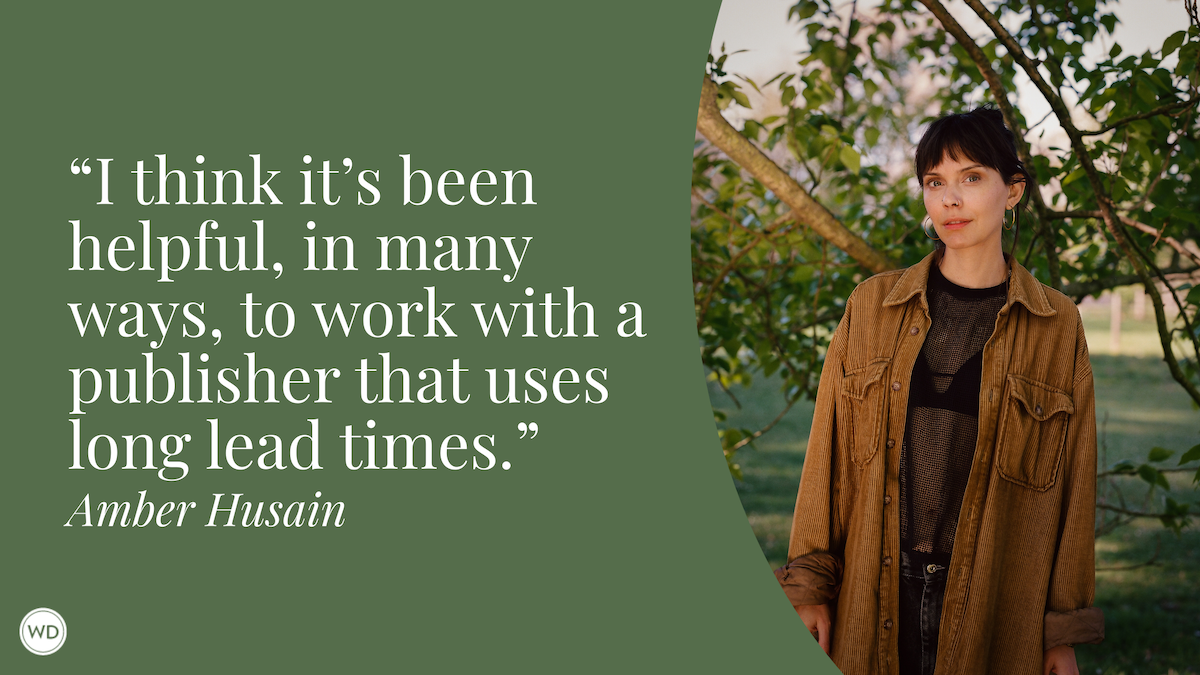9 Ways to Overcome Too Many Ideas Syndrome
Don’t let your creativity get in the way of your productivity. Here are nine tips for overcoming Too Many Ideas Syndrome. Learn how to answer the question, “How can I stick to just one idea?”
Some writers sit down in front of a blank computer screen and hope for inspiration to hit them out of the blue. Others have the opposite problem, with ideas for plot twists, article topics, greeting card taglines and even song lyrics buzzing incessantly in their heads. In fact, when I asked 10 writers if they considered themselves sufferers of Too Many Ideas Syndrome (TMIS), the answer from all was a resounding "Yes."
TMIS may not seem much of a problem, especially in an occupation that requires new ideas popping up regularly in order to drive creativity. But having too many ideas and no focus can be just as debilitating to a writer as staring at nothingness, especially if the syndrome causes indecision, procrastination, failure to meet deadlines, insomnia and anxiety. You don't hear much about TMIS because complaining about being too creative is like complaining about being on The New York Times bestseller list too often.
Imagine standing in the cereal aisle at the grocery store facing dozens of different breakfast options, trying to decide which one to buy. Should you go for the oat squares to reduce your cholesterol, even though you're fairly certain they'll taste like pine needles? Something with lots of sugar and a cartoon character on the box to remind you of your childhood? The bran flakes to keep you regular? There are so many choices and all of them seem good.
*****
Finish That Novel!
Push yourself beyond your comfort zone and take your writing to new heights with this novel writing workshop, designed specifically for novelists who are looking for detailed feedback on their work. When you take this online workshop, you won't have weekly reading assignments or lectures. Instead, you'll get to focus solely on completing your novel.
*****
For many writers, that's what it feels like every time they try to put words on a page. I know. I suffer from TMIS. At this very moment, my desk is covered with four freelance article ideas, a book outline, two greeting card projects and applications for seven writing competitions. Not to mention a list of baby names I'm using to try to name the characters in the musical I promised myself I'd finish soon.
Melissa Hart, author of The Assault of Laughter, says she's been plagued with TMIS since she was 10 and her mother taught her how to write and submit a short story for publication. "Ever since then, my mind has been besieged with ideas for stories, novels, poems, magazine articles, op/ed pieces and children's books. I wake up in the middle of the night with my head spinning. Sometimes I wish I'd chosen a more sensible career—like plumbing."
9 Ways to Overcome Too Many Ideas Syndrome
There are strategies for coping with TMIS, and they aren't as drastic as leaving the writing life for the snaking-the-drain life. Here are nine that may help you:
1. THE RED DRESS THEORY.
I've been teaching this theory to my comedy-writing students for years. It's based on the premise that at any party, there will be more women wearing black dresses than red ones—the red ones stand out and get attention. When faced with an overwhelming number of ideas, I try to evaluate them to see which one seems most like a red dress in a sea of black. For me, bold, brash ideas are almost always the ones that inspire and motivate me.
2. IT'S THE STUPID IDEA, STUPID.
Tim Bete enjoys pursuing what he calls his stupid ideas. "My new book, Guide to Pirate Parenting, was the stupidest idea I ever had for a book," he says. "But as the idea evolved, it became one of the best ideas. It just needed time to age. Time lets things percolate. If you keep thinking about a stupid idea over a long period of time, it may get legs—or, in my case, peg legs."
He may have a point. My bestselling book to date is Bedtime Stories for Dogs. That's right—stories for dogs. Talk about crazy.
3. THIS IDEA HAS LEGS.
Another way I deal with TMIS is to take my dogs for a walk. Not only do I think better on the move, but once I get away from the jumble of paper piled on my desk, things become clearer. I always carry a tape recorder so I can record ideas as I move. When I get back, whatever ideas I've been excited enough to talk about are those I'll pursue first. Hart tucks a pen into her ponytail when she goes running so she can write good ideas on her hand while bad ideas fall by the wayside.
4. THE ASSIGNMENT IS DUE.
Even if you don't have a deadline, make one up. Too much time often exacerbates confusion and indecisiveness, especially when you're faced with too many ideas. I've taught five-minute writing exercises in my classes for years and found they produce highly creative writing. Bete has similar advice: "Reduce the amount of time you have to write because less time means less wasted time on unproductive ideas."
5. MIND OVER MIND.
Many of the writers I spoke with rely heavily on their own imagination to cure TMIS. Susan Reinhardt, author of Don't Sleep with a Bubba, thinks of her writing life as a garden. "I try to decide which of my ideas should be yanked out before they even make it to the page," she says.
Award-winning screenwriter Cynthia Whitcomb, who has sold 70 screenplays and seen 29 come to the screen, puts on a chef's hat instead. Her advice: "Think of your ideas like pots on the stove in the kitchen of your creative mind. Lift the lids and look inside. One of them is always closest to being soup. Write that one first."
6. GIVE IN TO PASSION.
Many authors, especially nonfiction writers, gravitate to ideas about which they have the most passion. Dr. Christiane Northrup, author of bestselling women's health books including her latest, Mother-Daughter Wisdom, says, "I go with the idea that brings me the most pleasure or has the most juice. For example, if I have to choose between writing about osteoporosis or writing about sex, I'm going to go with sex! But I also like to tackle subjects that bring up the crusader in me. I recently wrote about the HPV vaccine and why most women don't need it."
Wendy Maltz, a sex therapist who has written a number of self-help books, including The Sexual Healing Journey, says she writes only about things she feels passionate about. "I don't even like writing, but I get all these ideas and writing is the best way to have the biggest social impact. I write out of a need to help, so I choose ideas that will benefit the most people and about which there is the least information available."
7. ORGANIZE VISUALLY.
Hart takes a very visual and organized approach to sorting through her ideas. "I'm a big fan of the bulletin-board approach. I have a huge board in my office. It helps me to be able to see my various projects. I can't visualize computer files."
Many writers are highly visual and this approach can help a lot, especially if you color-code the cards pinned to your board.
8. GET (META) PHYSICAL.
Dr. Northrup uses another kind of card to help her sort through her many ideas for projects. "I often make decisions using the Motherpeace Tarot card deck. Before cutting the cards, I ask for guidance. There's no magic in these cards; they're an intuition tool and help me get in touch with what my intuition is trying to tell me."
9. THAT'S WHAT FRIENDS ARE FOR.
Every writer needs a network of friends she can bounce ideas off of comfortably. There's no quicker way to jettison a few ideas than pitching them to friends and have them give you that stare that says, "What else have you got?" Over the years, I've belonged to several writers' groups but find I usually go back to the same three or four people for advice. I trust them to tell me the truth and help me sort good ideas from bad.
If you have TMIS, you don't have to suffer in silence. You can use one or more of these ideas (yes, I realize the oxymoron in presenting an idea person with more ideas). I hope you'll get relief quickly. If not, my only other advice is to choose the sugary cereal with the toy in it.
Leigh Anne Jasheway is a stress management and humor expert, comedy writer, stand-up comic, and comedy instructor/coach. She has an M.P.H. degree which is either stands for masters of public health or mistress of public humor She consults with organizations on how to use humor to manage stress, change, and conflict, and boost creativity, teamwork and morale. In 2003, she won the Erma Bombeck Award for Humor Writing, has 21 published books and has hosted two radio programs, Women Under the Influence of Laughter, on KOPT AM in Eugene, Oregon and the Giggle Spot, on All Comedy 1450. She also teaches comedy writing and stand-up and is a part-time faculty member at the University of Oregon School of Journalism and Communications. Follow her @lajfun and accidentalcomic.com.








